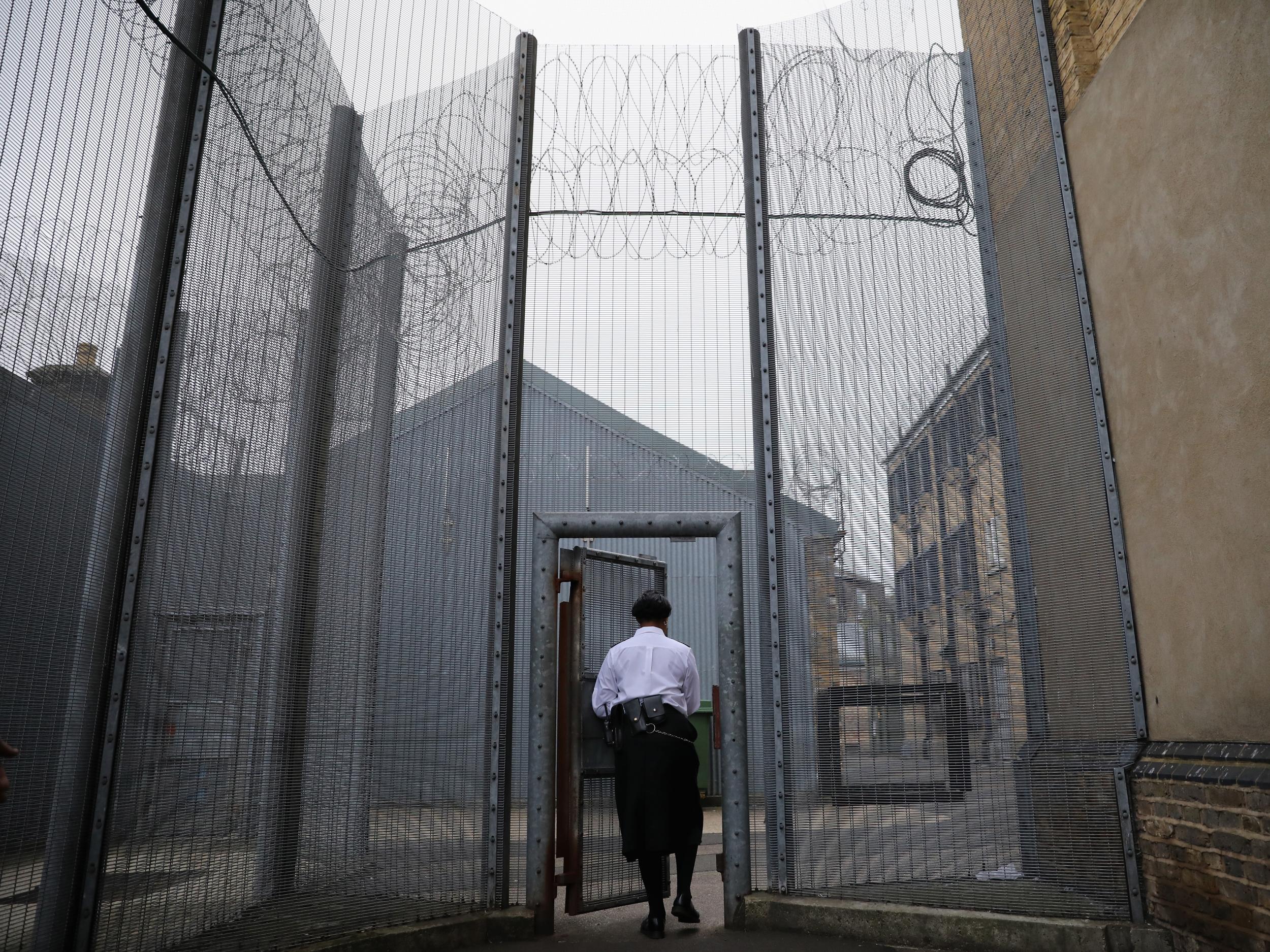A prisoner dies by suicide every three days in the UK – here’s why
Prisoners are spending up to 23 hours a day locked in their cells, the imposition of prison punishments has increased, and a more punitive daily regime was introduced in prisons at the same time as the number of deaths by suicide began to rise

Your support helps us to tell the story
From reproductive rights to climate change to Big Tech, The Independent is on the ground when the story is developing. Whether it's investigating the financials of Elon Musk's pro-Trump PAC or producing our latest documentary, 'The A Word', which shines a light on the American women fighting for reproductive rights, we know how important it is to parse out the facts from the messaging.
At such a critical moment in US history, we need reporters on the ground. Your donation allows us to keep sending journalists to speak to both sides of the story.
The Independent is trusted by Americans across the entire political spectrum. And unlike many other quality news outlets, we choose not to lock Americans out of our reporting and analysis with paywalls. We believe quality journalism should be available to everyone, paid for by those who can afford it.
Your support makes all the difference.No one should be so desperate while in the care of the state that they take their own life. Figures published today, however, reveal that, on average, a prisoner dies by suicide every three days in England and Wales.
The Howard League for Penal Reform has been notified of 102 people losing their lives to suicide since the beginning of 2016. With five weeks remaining until the end of the year, this is already an all-time record and, unfortunately, the death toll is likely to rise further as Christmas can be a particularly distressing time.
The prison suicide rate, at 120 deaths per 100,000 people, is about 10 times higher than the rate in the general population.
There are reasons why this is happening. The rise in the number of suicides behind bars – a 34 per cent increase in three years – has coincided with cuts to staffing and budgets and a rise in the number of people in prison, resulting in overcrowding. Violence has increased and safety has deteriorated.
Prisoners are spending up to 23 hours a day locked in their cells, the imposition of prison punishments has increased, and a more punitive daily regime was introduced in prisons at the same time as the number of deaths by suicide began to rise.
Today, the Howard League for Penal Reform and Centre for Mental Health have published a report on preventing prison suicide that sets out a blueprint for how to save lives.
A prison regime should be built around a normal life. People in prison should be able to get up, have a shower and breakfast, occupy themselves productively, socialise and exercise and go outdoors. All prisons should have enough staff with the right skills and experience to keep prisoners safe.
The report calls for the revised Incentives and Earned Privileges (IEP) scheme, introduced in prisons in November 2013 by the then Secretary of State for Justice, Chris Grayling, to be scrapped as “prisoners are being deprived of valuable coping mechanisms at a time when they most need it”.
Some prisoners, including all newly convicted prisoners spending their first two weeks in prison, have limits placed on family contact, physical activity and access to their money and possessions.
In 2013, the year that the revised IEP scheme was brought in, the number of people in prison who lost their lives to suicide was 76. This year, the total had reached 102 by the middle of November.
The report also looks at how placing prisoners in solitary confinement increases the risk of suicide. It reveals how people are being held under segregated conditions for weeks, months and even years. There are no limits on how long a prisoner may be segregated for, nor is there any requirement for the prisoner to be informed of how long he or she will remain in segregation. This engenders what the report calls “a sense of hopelessness”.
The Government has promised to recruit additional staff, but we cannot wait months for them to appear. The Howard League has put together a campaign that recommends practical steps to reduce the pressure on the system. We are asking ministers for action on the 3 Rs:
Rules in prison: Between 2010 and 2015, more than a million days of additional imprisonment have been imposed on prisoners for the breaking of prison rules. Instead of solving the problems in prison, these punishments feed a vicious cycle, increasing the pressure on the prison population and worsening overcrowding.
Release from prison: Prisoners need more opportunities to earn their return to the community through temporary release and parole.
Recall to prison: The number of people in prison due to recall has soared by 15 per cent in a year and is now 55 times greater than it was in 1993.
By taking bold but sensible action to reduce the number of people in prison, we can save lives and prevent more people being swept away into deeper currents of crime and despair.
Frances Crook is the chief executive of the Howard League for Penal Reform
Join our commenting forum
Join thought-provoking conversations, follow other Independent readers and see their replies
0Comments